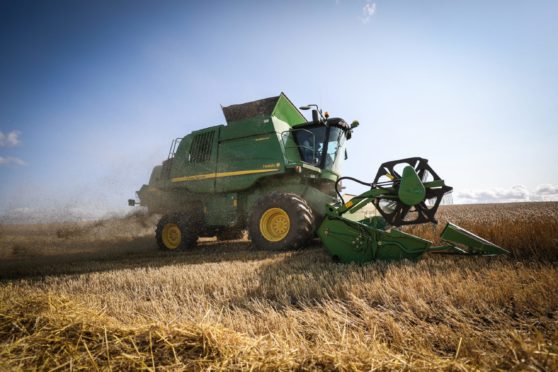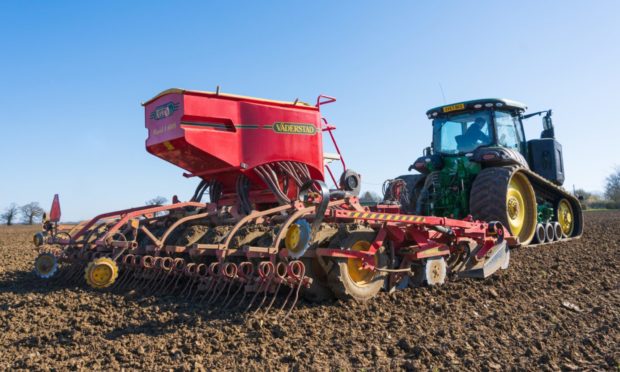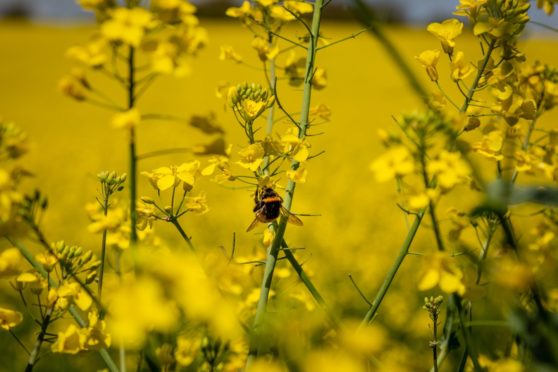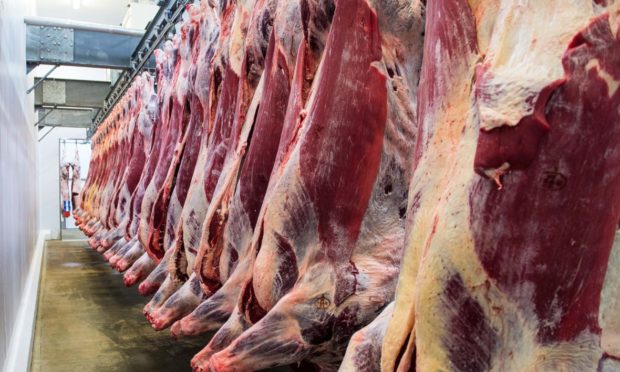One the smallest wheat harvests in nearly 40 years and the impact of Covid-19 on farm diversifications drove UK farm incomes to their lowest level since 2007 last year, according to government figures.
The first estimates for Total Income From Farming (TIFF) in the UK, published by the Department for Environment, Food and Rural Affairs (Defra), show a UK-wide income figure of £4.12 billion. This is down 16%, or £768 million, on the year before.
TIFF is a measure of the total profit from all UK farming businesses on a calendar year basis, measuring the return to farmers for their management, inputs, labour and capital invested.
The estimates suggest the reduction in TIFF, in real terms, was higher at 20%, or £1.05bn – the lowest level, in real terms, since 2007.
In its statistical release outlining the estimates, Defra said the main drivers for the drop in TIFF were a 10% fall in the value of crop output, equating to £999m, largely caused by unfavourable weather, and a 20% drop, equating to £310m, in the value of output from diversified non-agricultural activities due to Covid-19 lockdowns.
It said a 3.4% increase – worth £490m – in the value of total livestock output failed to offset the drop in incomes from crops and diversified activities, and overall input costs were almost unchanged in the year.
Crops
The figures estimate the value of output from cereals was down 24% to £2.759bn, driven mainly by a 36% reduction in wheat output to £1.55bn.
“Drilling of winter wheat in 2019/20 was badly affected by significant winter rain meaning that some planting was abandoned in favour of spring sowing of other crops,” said Defra.
“The very dry spring caused further problems and, whilst the harvest got off to a good start, heavy rain in mid / late August caused losses and quality issues.
“The result was a 24% fall in wheat area and reduced yields contributing to the smallest UK wheat harvest (by volume) since 1981. A price rise of 6.1% for wheat was not nearly enough to compensate for the 40% fall in volume.”
Growers switching to spring crops also resulted in a 1.7% decrease in the value of output from barley to £1.054bn, while the value of output from oilseed rape was down by 39% to £358m.
Defra said: “The planted area of oilseed rape fell again in 2020, this time by 28%, giving the smallest areas since 1989 and contributing to a 41% fall in volume. Wet weather during crop establishment and infestations of cabbage stem flea beetle proved problematic for growers.”
Covid-19
The Covid-19 pandemic had a positive impact on the livestock sectors, but a detrimental impact on diversified non-agricultural activities.
The value of output from livestock primarily for meat rose by 6.7% to £8.57bn, with beef up by 7.3% to £2.9bn, pigs up by 7.4% to £1.4bn and sheep up 7.7% to £1.35bn.
Defra said the closure of hospitality outlets due to Covid-19 reduced demand for high value cuts of beef, but initial concerns that these cuts would be minced and the carcase value would decrease appear not to have been too damaging.
It said the pig meat market proved resilient to Covid-19 lockdowns, while retail volumes of lamb were boosted by demand for takeaways during the second half of the year and prices were also helped by reduced competition from New Zealand.
The figures also reveal a 5.3% increase in the value of output from poultry for meat to £2.813bn – Defra said this was mainly driven by increased demand, especially for free-range and organic chickens, as consumers sought luxury meals at home during lockdown.
The value of output from eggs was also up 11% to £730m as more people baked during the pandemic, however the output from milk fell slightly to £4.4bn due almost entirely to a 0.55p per litre reduction in average farmgate milk prices during the year.
Lastly, the value of output from non-agricultural diversified activities was down 20% to £1.239bn – this is below the five-year average of £1.387bn and driven largely by the impact of Covid-19 lockdowns on these activities, which include glamping, farm shops and cafes.



